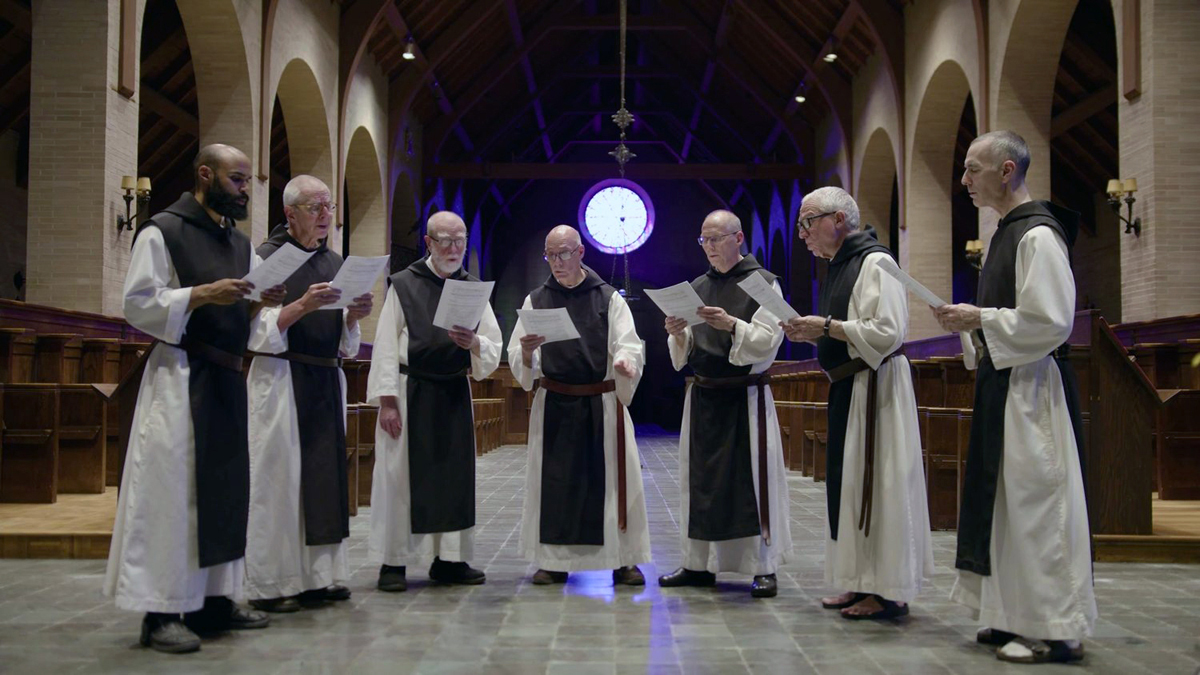Key Points:
- “Sabbath: An Ancient Tradition Meets the Modern World” is airing on PBS stations and is free to stream at the website of Journey Films.
- The two-hour documentary looks at how various groups observe a weekly Sabbath, and argues for the importance of the practice.
- United Methodists are part of the team that made the film and appear in it.
“Sabbath: An Ancient Tradition Meets the Modern World” is a documentary with an agenda. The film’s director, Martin Doblmeier, believes that setting apart one day a week to rest and reflect is desperately needed in our go-go, social-media-saturated society.
“In generations past, it was an obligatory behavior pattern,” said Doblmeier, who has made more than 35 films on religion and spirituality for Journey Films, which he founded. “We're inviting people to rediscover the Sabbath as a gift that's less about the obligation of it. It's more about the opportunity and the privilege of doing it.
“One day a week, you say, ‘I've done enough, and I am enough. I have enough for that one day.’”
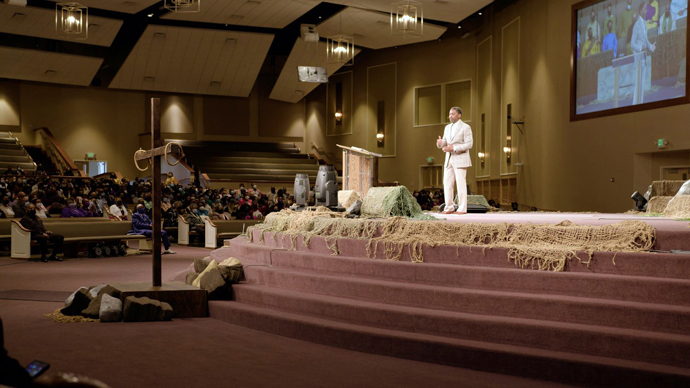
The two-hour documentary was released in June by American Public Television, with airing dates being set by local PBS channels. Viewers also can screen the film for free at the Journey Films website.
United Methodists are part of the team that made the film and appear in it. Members of some Seventh-day Adventist churches and at least one United Methodist church are devoting time to screen and discuss “Sabbath.” It has been shown at Washington National Cathedral and is set to be viewed at the American Academy of Religion convention in November in San Antonio, Texas, said Deryl Davis, producer of the film and a United Methodist.
“Work should not be what defines us,” said Norman Wirzba of Duke Divinity School. “There are other parts of our lives — rest, restoration, community, personal well-being, communal well-being, worship, ritual — all of these things are equally important parts of life.
“It's about creation, recreation and our ability to rest and therefore enjoy what God has offered and created for us.”
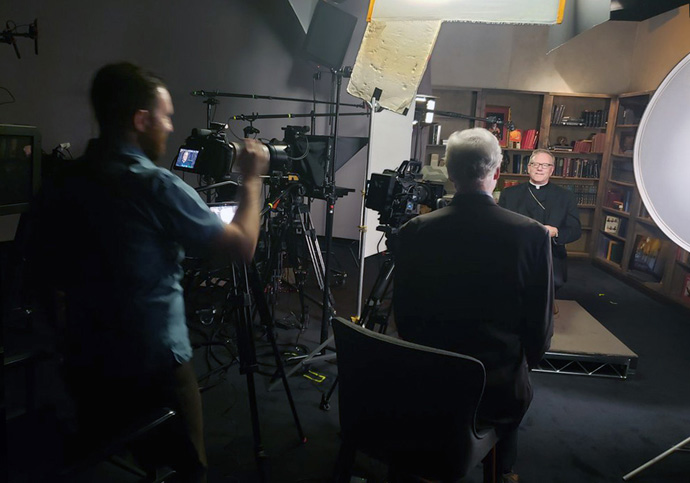
The Rev. Will Ed Green is lead pastor at Silver Spring United Methodist Church in Maryland. His church is using the film to spark conversations.
“Part of what I appreciated about the documentary … is the way in which Sabbath can occur in a variety of practices,” Green said. “It doesn't just have to be Sunday morning church and Sunday evening church with youth group in the middle. It doesn't have to be Sunday dinners with your uncle who prays those hour-long prayers.
“It can be everything from volunteering at a soup kitchen to carving out quiet space in your life.”
The Sabbath “is absolutely vital to sustaining lifelong discipleship,” he added, but stressed that it does not mean “taking a nap.”
“Without regularly carving out spaces to encounter the presence of God, not only does our faith begin to atrophy, but our spiritual well-being negatively impacts the spiritual well-being of the people around us,” Green said.
“We burn out and we burn out other people along the way.”
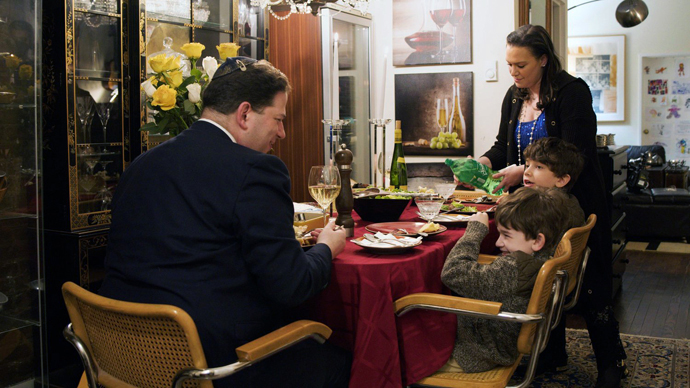
The film was conceived in part in response to the COVID-19 pandemic.
“Churches are all shut down and I'm realizing how devastating this is for congregations all across the country,” Doblmeier remembered. “Everybody's feeling burned out. Everybody's feeling stressed out.”
Journey Films’ documentaries on Rabbi Abraham Joshua Heschel, who wrote the book “The Sabbath: Its Meaning for Modern Man,” and the Seventh-day Adventist Church also piqued his interest in doing a film on this topic.
“Sabbath” looks at its subject through different points of view, including Judaism, the pandemic, the environment, Seventh-day Adventists, justice, Islam, Latinos and the workplace.
In the film, Thomas Kidd, professor of church history at Midwestern Baptist Theological Seminary, said that the U.S. labor movement is “a surprisingly religious story, and it does often converge on the issue of Sabbath.”
How to watch
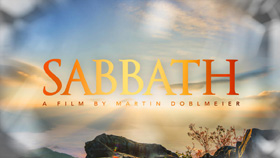
“Sabbath: An Ancient Tradition Meets the Modern World” was released in June by American Public Television to local PBS stations. To find an air time, check your local station listings.
Viewers can also watch the film online for free or sponsor a public screening for any group of 20 more through Journey Films.
For more information, click here
The documentary’s segment on labor asserts that “everyone deserves to have a Sabbath,” Doblmeier said.
“It's a social justice and a labor justice issue for those people working at Burger King or three jobs to … find some way that the Sabbath is an invitation that they can take advantage of, as well.”
Observing a Sabbath doesn’t mean quitting a job or not showing up for work. It’s a matter of priorities and “a commandment about how to live a life that isn't only about work,” Davis said.
Green said The United Methodist Church itself has been guilty of ranking business above the Sabbath — particularly at General Conference, the denomination’s quadrennial legislative meeting.
“It has to do with the way that we do holy conferencing these days across the country,” he said. “General Conference, where we work people from 6 a.m. to midnight, and then ask them to get up and make decisions guided by the Holy Spirit that they've not had a moment's breath to listen to. … The institution is just there to help serve our identity. It's not meant to be our identity.”
One promising application of the Sabbath is eliminating technology and social media one day a week, Doblmeier said.
“I'm putting down the whole notion of being available 24/7,” he said. “We've created a real cycle … where the expectations of response are so driving us crazy.
“There's a growing movement to say, ‘I'm putting down everything for a day.’”
That variety of ways to observe Sabbath may appeal to folks who don’t engage with organized religion, Green said.
“If God is present in everything and around us at all times, every moment is a moment pregnant with the possibility that God is going to show up,” he said. “I don't think that people have to practice an organized religion to experience the gift of Sabbath because God is always present and active.”
But, Doblmeier said, promoting the Sabbath is not a back-door attempt to spark renewed interest in organized religion.
“What we are saying is that this is a spiritual practice that has ancient roots,” he said. “It's good for you, and it's healthy for your body, mind and spirit. … We did it because we genuinely felt the Sabbath was a necessary topic for us to treat in a public television way. And hopefully, it'll have some positive benefits.”
Patterson is a UM News reporter in Nashville, Tennessee. Contact him at 615-742-5470 or newsdesk@umcom.org. To read more United Methodist news, subscribe to the free Daily or Weekly Digests.

